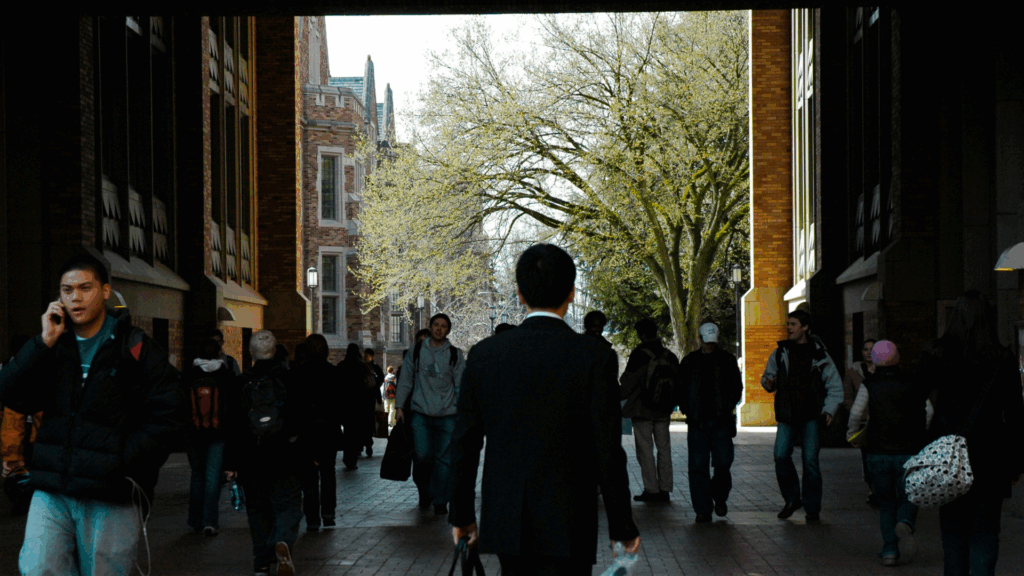DIVINE FILIATION
When Saint Paul writes to Timothy and confidently opens his heart, he recalls how our Lord trusted him and made him an Apostle, despite his having been a blasphemer and persecutor of Christians. The grace of our Lord, he says, has abounded beyond measure in the faith and love that is in Christ Jesus (1 Tim 1:12-14). We, also, can acknowledge that God has poured forth his grace upon us in great measure. After creating us, God has wished freely to give us the greatest dignity – that of being his children and achieving the happiness proper to the the members of his own family (Eph 2:19).
Natural divine filiation belongs only to God the Son: Jesus Christ, the Son of God, the only-begotten, born of the Father…, begotten, not created; consubstantial with the Father (Council of Nicea, 325, Denz-Sch. 125). But God, by means of a new creation, has wanted to make us his adopted children, partakers of his only Son’s filiation: Behold what manner of love the Father has bestowed upon us, that we should be called children of God; and such we are (1 John 3:1). God wanted to give his grace to Christians so that they might share in the divine nature as Saint Peter says in one of his Epistles (2 Pet 1:4). In human generation, the life once received by the children no longer belongs to their parents; in contrast, by means of sanctifying grace the life of God himself is given to men. Without destroying or distorting our human nature, we are admitted into the intimacy of the Blessed Trinity by way of filiation, which in God is given through the only-begotten Son of the Father.
Our whole life, our being and all our activity, is affected by the fact of our divine filiation (cf F. Ocariz, The Meaning of Divine Filiation, Pamplona 1982). Multiple practical consequences spring from it – prayer, for example, becomes the dialogue between a little child and his father, because beyond his necessary designation as the Supreme Being, Creator and Almighty, we discover that God is truly our Loving Father. Our interior life is no longer a lonely fight against our defects, or an exercise in perfecting oneself but rather an abandonment into the strong arms of him whose children we now truly are. We conceive a lively and practical desire to please our Father, God, who loves us so much.
All Christians can truthfully say: God has bestowed his grace upon me; He has brought us forth into a new life in Christ Jesus (Gal 3:28). By this life we come to resemble Christ our Brother, and as such we are sons and daughters of the Father. It is precisely the Paraclete who teaches us this magnificent reality, and who makes it real even without our notice. Through him we recognize Jesus as the Son of God; we recognize ourselves to be God’s children, not strangers, and act accordingly. Saint Thomas Aquinas summarizes our relationship with the Blessed Trinity in these brief words: Adoption; though common to the whole Trinity, is appropriated to the Father as its author; to the Son; as its exemplar; to the Holy Spirit as imprinting on us the likeness of this exemplar (St Thomas, Summa Theologiae, 3, q. 23, a. 2, ad 3).
This reality imbues our life with firmness and gives it a specific way in which to face its challenges. Draw strength from your divine filiation. God is a Father – your Father – full of warmth and infinite love. Call him Father frequently and tell him, when you are alone, that you love him, that you feel proud and strong because you are his sons (J. Escrivá, The Forge, 331). God is the rest and strength we need.
If being a son of God means identification with his Son, it also implies looking at all the events of our life with the Son’s eyes, judging them with his judgment, and obeying like Christ, who made himself obedient unto death (cf Phil 2:8). We should love and forgive as He did, always acting as children who know they are in the presence of their Father God (cf Maria C. Calzona, Divine filiation and Christian life in the middle of the world, EUNSA, Pamplona 1987), always full of confidence and serenity, sure of being understood and continually urged to move ahead in our life.
He who knows himself to be a son of God knows no fear. God knows best what our real needs are; he is stronger than we are, and he is our Father (cf V. Lehodey, Holy Abandonment). We must react like the child who, in the middle of a storm, continued playing while the sailors feared for their lives: he was the captain’s son. When after disembarking the child was asked how he was able to remain at ease, surrounded as he had been by a roaring sea and a terrified crew, he answered: Fear? Why? My father was at the helm. When we try to identify our will with the Will of God, it is He who steers us with an expert hand towards a safe harbour. Our life is then in good hands, whether the seas are calm or when the storm rages.
When God permits it, a person seriously striving for holiness may find himself as if lost in the midst of difficulties, feeling hopeless and perplexed, not understanding what is happening despite his desire to belong completely to God. There are moments when one feels confused about the Will of God, and one cries: Lord, how can you will this, if it is so evil, if it is abominable ‘ab intrinsico’ – such was the complaint of Christ’s Humanity in the Garden of Gethsemane. There are moments when our senses reel and our heart breaks. If you ever feel as if you are falling into a bottomless pit, I offer to you a prayer that I repeated many times beside the tomb of a person I loved: ‘May the most just and most lovable will of God be done, be fulfilled, be praised and eternally exalted above all things. Amen. Amen (J. Escrivá, The Way, 691).
Then is the time to be very faithful to the Will of God, the time to be completely docile in spiritual direction, to let ourselves be helped and encouraged, whether we understand or not. He is our Father, and if He allows this situation, this state of darkness, He will also provide the necessary graces and help. Abandonment in the hands of God, without setting limits, will win for us unbreakable peace. And in the midst of the most absolute emptiness we will feel the arm of God – powerful, though gentle – sustaining us. Then, slowly and with a sweet taste in our mouth, we will also repeat that confident prayer: May the most just and most lovable will of God be done, be fulfilled, be praised…
Thou dost show me the path of life; in thy presence there is fullness of joy, in thy right hand are pleasures for evermore (Responsorial Psalm, Year 1: Ps 15:11), the Psalmist proclaims. There is no deeper joy than that of the child of God who abandons himself in the hands of his Father, even when he is surrounded by want and emptiness, because there is nothing comparable to the infinite richness of being a member of God’s family, one of his children. This supernatural joy, closely linked to the Cross, is the great secret of Christians (cf G. K. Chesterton, Orthodoxy). A child of God never loses his peace, not even in the darkest of moments; consciousness of his divine filiation frees him from interior tension, and moves him to return contritely and confidently to his Father’s house if he has gone astray out of weakness.
Divine filiation is also the foundation of Christian fraternity, which lies far above the human bond of solidarity (Maria C. Calzona, op cit). Knowing that we are sons and daughters of the only Father, we feel ourselves to be the brothers of other Christians, whom God our Father has wanted to join to us with the supernatural bond of charity. Our fraternity must have countless manifestations in our ordinary life – mutual respect, delicacy in dealing with others, a spirit of service and mutual help on the way towards God. In the Gospel of today’s Mass, God demands that his own people have a clear vision of their brothers. Why dost thou see the speck in thy brother’s eye, and yet dost not consider the beam in thy own eye?… First cast out the beam from thine own eye, and then thou wilt see clearly to cast out the speck from thy brother’s eye? (Luke 6:41-42). The Master invites us to look at others without the prejudices that arise from our own faults, or from the pride which tends to magnify the weaknesses of others and diminish our own. Our Lord exhorts us to look at others from deeper within, with a different kind of glance … For that purpose it is necessary to remove the beam from our own eye. Sometimes we busy ourselves in the comparatively trivial task of trying to remove the speck from everybody else’s eye, but what is necessary is to radically alter our way of looking at them (A. M. G. Dorronsoro, God and his people, Madrid 1974), to behold them as brothers of ours for whom God feels a special love. Consider the others, especially those who are at your side, as children of God, with all the dignity which that marvellous title entails.
We have to behave as God’s children towards all of God’s sons and daughters. Our love has to be a dedicated love, practised every day and made up of a thousand little details of understanding hidden sacrifice and unnoticed self-giving. This is the good ‘fragrance of Christ’ that made those who lived among our first brothers in the faith exclaim: ‘See how they love one another!’ (J. Escrivá, Christ is passing by, 36).
We must relate to the children of God as the children of God that we are, looking at people with the same love and understanding with which Christ looks at them, and we must do so with those who are close to us and with those who seem far away. Our fraternity extends to all people, for they are all children of God, all his creatures, and all invited without exception to the intimacy of the Father’s household. This same fraternity will move us to do a wide-ranging apostolate, without neglecting any means to bring souls closer to God.
Following the broad way of divine filiation, we will go through life with serenity and peace, doing good (cf Acts 10:38) like Jesus Christ, who is the Model in whom we must see ourselves constantly, in whom we learn how to be children of God and to behave as such. The Blessed Virgin, Mother of God and Mother of us all, will teach us to abandon ourselves in God, like the small and needy children we are. If we call upon her, Mary will never leave us unaided.
Article by Unknown
Photo by Daniil Silantev on Unsplash



